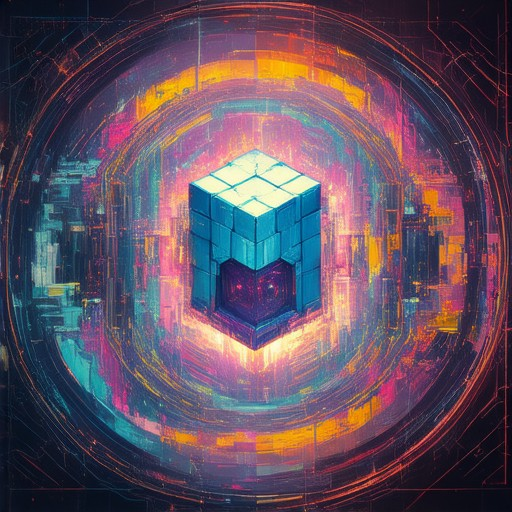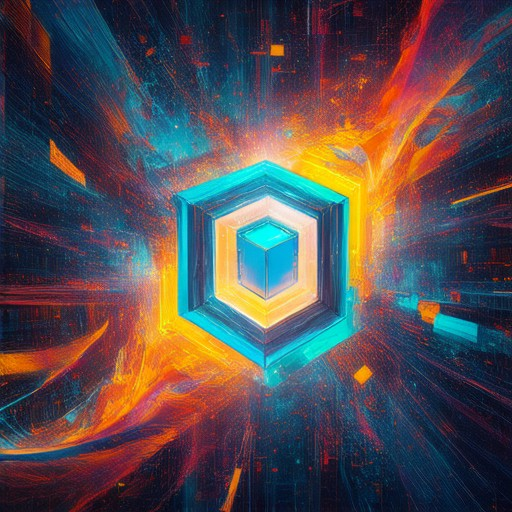For independent game developers, unlocking creative potential often lies in exploring the right paths to expand their projects’ reach and influence. One of the most critical aspects of this journey is understanding and implementing effective indie game licensing options. Whether it’s partnering with platforms, securing music rights, or finding the perfect balance between creative control and commercial success, licensing plays a pivotal role in determining how your work resonates with global audiences. In this article, we’ll delve into the diverse indie game licensing options available, evaluate popular platforms, discuss essential legal considerations, and uncover strategies to maximize revenue through licensing. From navigating the complexities of music licensing to exploring innovative approaches enabled by emerging technologies, our exploration will equip you with the knowledge needed to make informed decisions about your project’s future.
Key Takeaways: Unlocking Creative Potential in Indie Game Licensing
- Master the Five Key Licensing Models: Explore exclusive, royalty-free, custom, open-source, and independent publishing options to suit your needs.
- Negotiate Smarter Contracts: Understand territory restrictions, contract terms, and how they affect future projects.
- Protect Your IP with Legal Compliance: Secure copyright, EULAs, and trademarks to safeguard your game.
- Choose the Right Distribution Platforms: Target platforms like Steam, Itch.io, or Nintendo eShop based on your strategy.
- Diversify Income Streams: Use crowdfunding, microtransactions, and subscriptions for multiple revenue sources.
- Engage Your Community Effectively: Build loyalty through forums, workshops, and sponsorships.

Best Indie Game Licensing Options
As an indie game developer, securing the right licensing options is crucial for protecting your intellectual property while allowing your game to thrive in the competitive market. Here are the top licensing solutions tailored for indie developers:
1. Indie Dev Games Licensing Program
The Indie Dev Games Licensing Program offers a streamlined approach for indie developers to monetize their games effectively. This program provides flexible licensing terms, enabling you to choose between royalty-based models or flat-rate fees, depending on your business goals.
2. Unity Asset Store
The Unity Asset Store is a go-to resource for indie developers seeking high-quality assets and tools. While primarily known for its asset library, Unity also offers robust licensing options for developers who want to integrate third-party content into their games.
3. itch.io Monetization Tools
itch.io provides a user-friendly platform for indie developers to host and sell their games. Their monetization tools include tiered pricing models, subscriptions, and donations, making it easy to experiment with different revenue streams while focusing on creative development.
4. GameDev Store
The GameDev Store offers a variety of licenses and tools specifically designed for indie game developers. Their offerings include sound effects, music, and development tools, all available under flexible licensing agreements.
5. Creative Commons Licensing
For those looking for more open-ended options, Creative Commons provides various licensing models that allow you to share and distribute your game assets while retaining copyright. This is particularly useful for collaborative projects or when you want to encourage community contributions.
6. Steamworks & Intelligenz
Steamworks & Intelligenz offers comprehensive licensing solutions for indie developers publishing on the Steam platform. Their programs support developers through exclusive distribution rights, revenue sharing, and promotional tools, helping you maximize visibility and sales.
7. Humble Bundle
Humble Bundle provides a unique alternative to traditional licensing with their pay-what-you-want model. This approach not only supports indie developers but also fosters a community-driven culture, as players determine the price they feel the game is worth.
8. Patreon for Game Development
Patreon is an excellent platform for building a sustainable income stream while developing your game. By offering patrons exclusive content, early access, or behind-the-scenes insights, you can establish a loyal fanbase and secure consistent funding for your project.
9. Ko-fi Gold
Ko-fi Gold is another great option for indie developers seeking financial support. Similar to Patreon, it allows you to offer exclusive rewards to patrons in exchange for their monthly contributions, providing a reliable source of income while you focus on your creative work.
10. Discord Server Partnerships
Partnering with established Discord communities can also be a powerful tool for licensing. By offering premium memberships or exclusive game content to your server members, you can build a dedicated audience and create a steady revenue stream.
Remember, the choice of licensing model depends on your specific needs, including revenue goals, project scope, and audience preferences. Explore these options carefully and select the ones that align best with your vision for your indie game.
Top Indie Game Licensing Options for Developers
As an indie game developer, securing the right licensing structure is crucial for protecting your creations and maximizing your opportunities in the gaming market. Here are the top licensing options tailored for indie developers:
- Forming an LLC or Sole Proprietorship : These structures offer personal liability protection and simplify tax filing processes. Many indie developers opt for an LLC due to its flexibility and legal safeguards.
- Registering Copyrights and Trademarks : Protect your game’s artwork, music, and code by registering copyrights. Trademarks can also be filed for unique game names and logos to prevent infringement.
- Publishing Models : Decide between traditional publishing, where you work with a publisher, or self-publishing through platforms like Steam or Itch.io . Each option has its own pros and cons regarding revenue sharing and creative control.
- Utilizing Legal Services : Consider consulting with a lawyer specializing in gaming law to navigate complex contracts and licensing agreements. Legal advice can help avoid disputes and ensure fair terms.
- Joining Developer Communities : Platforms like IndieDB and TIGSource connect developers with potential partners and opportunities, fostering collaboration and exposure.
By exploring these licensing options, indie developers can secure their rights, thrive in a competitive market, and build lasting connections within the gaming community. Visit our main website for additional resources and guides tailored to indie game developers.

Key Indie Game Licensing Options Every Developer Should Know
Licensing is a critical aspect of bringing your indie game to market. Properly navigating the legal landscape ensures your work is protected and compliant with global regulations. Here are the essential licensing options every indie game developer needs to understand:
- Standard Copyright Protection – Register your game under copyright laws to protect original creative elements. This safeguards your intellectual property against unauthorized use.
- Game License Agreements – Secure agreements with third-party assets, music, or art to legally use these elements in your game. This avoids future disputes and ensures proper credit.
- Platform-Specific Requirements – Understand the licensing terms for each platform you plan to distribute on, such as Steam, Apple App Store, or Google Play. Some platforms may require specific asset usage rights.
- Open Source Licenses – If you intend to release your game under an open-source model, choose a license that aligns with your distribution goals, such as MIT, Apache, or GPL.
- Trademark Usage – If your game uses trademarks (like well-known characters), obtain proper permission through licensing agreements to avoid infringement claims.
For more detailed guidance, explore our Game Development Tools section and our comprehensive Marketing Strategies resources. These materials provide actionable insights and templates tailored for indie developers.

Understanding Indie Game Licensing Options
Licensing is a crucial aspect of bringing your indie game to market, ensuring your work is protected while allowing others to enjoy it. Here’s a breakdown of the primary licensing options available to indie developers:
1. Exclusive Licensing
In this model, you grant a publisher or company exclusive rights to your game. While this limits your ability to independently release future games, it often provides significant support in terms of development funding, marketing, and distribution. Companies like Unity and Epic Games offer such opportunities.
2. Royalty-Free Licensing
With a royalty-free license, you retain ownership of your game but agree to pay royalties to the licensee. This is common for libraries or tools, such as Unreal Engine . While this reduces your income potential, it can open doors for collaborations with larger companies.
3. Custom or Hybrid Models
Some developers opt for a hybrid approach, combining elements of exclusive and royalty-free agreements. This allows for tailored arrangements, such as receiving a advance against royalties or sharing profits based on sales performance.
4. Open Source Licensing
If you’re committed to fostering a community around your game, consider open source licensing. This allows players to modify and share your game, which can lead to grassroots innovation but may limit your control over derivatives.
5. Independent Publishing
Many indie developers choose to self-publish, retaining full ownership and control over their intellectual property. Platforms like Itch.io and Steam support this model, though success often depends on marketing and community engagement.
Key Considerations
- Territory Restrictions: Decide whether your license applies globally or to specific regions.
- Contract Negotiations: Work with legal advisors to ensure fair terms, especially for revenue-sharing agreements.
- Future Projects: Clarify whether your current game’s licensing affects your next projects.
For more detailed insights and resources on choosing the right licensing model, visit our comprehensive guide .
Key Indie Game Licensing Options Every Developer Should Know
Licensing is a critical aspect of bringing your indie game to market. Properly navigating the legal landscape ensures your work is protected and compliant with global regulations. Here are the essential licensing options every indie game developer needs to understand:
- Standard Copyright Protection – Register your game under copyright laws to protect original creative elements. This safeguards your intellectual property against unauthorized use.
- Game License Agreements – Secure agreements with third-party assets, music, or art to legally use these elements in your game. This avoids future disputes and ensures proper credit.
- Platform-Specific Requirements – Understand the licensing terms for each platform you plan to distribute on, such as Steam, Apple App Store, or Google Play. Some platforms may require specific asset usage rights.
- Open Source Licenses – If you intend to release your game under an open-source model, choose a license that aligns with your distribution goals, such as MIT, Apache, or GPL.
- Trademark Usage – If your game uses trademarks (like well-known characters), obtain proper permission through licensing agreements to avoid infringement claims.
For more detailed guidance, explore our Game Development Tools section and our comprehensive Marketing Strategies resources. These materials provide actionable insights and templates tailored for indie developers.

Key Indie Game Licensing Options Every Developer Should Know
When developing an independent video game, securing the right licensing agreements is crucial for protecting your work and ensuring compliance with legal standards. Below are the primary licensing options every indie game developer should be aware of:
- Distribution Platforms:
- Steam – A widely-used platform for distributing PC games, offering a vast audience and robust monetization tools.
- Itch.io – Known for supporting indie developers, this platform provides a user-friendly interface and low fees.
- Nintendo eShop – For developers targeting the Nintendo Switch console, this platform offers a dedicated storefront.
- Legal Compliance:
- Copyright Registration – Protect your game’s assets by registering your intellectual property with the U.S. Copyright Office.
- End User License Agreement (EULA) – Ensure clear terms for players regarding your game’s usage and restrictions.
- Trademark Protection – Register trademarks for unique game names and logos to prevent misuse.
- Monetization Methods:
- Crowdfunding – Platforms like Kickstarter allow developers to raise funds and engage fans early in the process.
- Microtransactions – Implement pay-to-win mechanics or cosmetic items for additional revenue streams.
- Subscription Models – Offer recurring subscriptions for access to premium features or exclusive content.
- Community Engagement:
- Game Jammers and Forums – Engage with your community on platforms like Discord or Reddit to build loyalty and feedback loops.
- Developer Workshops – Host live sessions to showcase progress and interact with fans.
- Sponsorships and Partnerships – Collaborate with brands for advertising or in-game promotions.
By navigating these licensing options thoughtfully, indie game developers can maximize their creative freedom while safeguarding their intellectual property and achieving long-term success in the competitive gaming landscape.




0 Comments